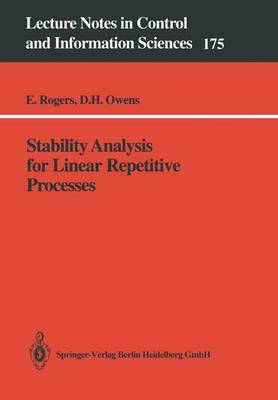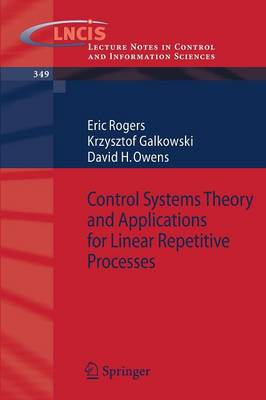Lecture Notes in Control and Information Sciences
2 primary works
Book 175
Stability Analysis for Linear Repetitive Processes
by Eric Rogers and David H. Owens
tal rolling, together with certain areas of 2D signal and
image processing, exhibit a repetitive, or multipass struc-
ture characterized by a series of sweeps of passes through a
known set of dynamics. The output, or pass profile, produced
on each pass explicitly contributes to that produced on the
text. This interpass interaction can lead to the growth of
oscillations, and hence a form of instability, in the se-
quence of pass profiles which require control strategies
that explicitly incorporate the essential repetitive struc-
ture of the process in their decision making. This monograph
is unique in developing the new techniques necessary for sy-
stematic control systems design in the form of a stability
theory and computationally feasible stability tests based on
finite simulations and polynomial analysis. Its development
requires a basic knowledge of linear frequency domain and
state-space theory and a knowledge of basic functional ana-
lysis would be beneficial. The text is aimed at researchers
in the area of control and systems theory and should also be
of interest to those working in the related area of signal
and image processing.
Book 349
Control Systems Theory and Applications for Linear Repetitive Processes
by Eric Rogers, Krzysztof Galkowski, and David H. Owens
After motivating examples, this monograph gives substantial new results on the analysis and control of linear repetitive processes. These include further applications of the abstract model based stability theory which, in particular, shows the critical importance to the dynamics developed of the structure of the initial conditions at the start of each new pass, the development of stability tests and performance bounds in terms of so-called 1D and 2D Lyapunov equations. It presents the development of a major bank of results on the structure and design of control laws, including the case when there is uncertainty in the process model description, together with numerically reliable computational algorithms. Finally, the application of some of these results in the area of iterative learning control is treated --- including experimental results from a chain conveyor system and a gantry robot system.

